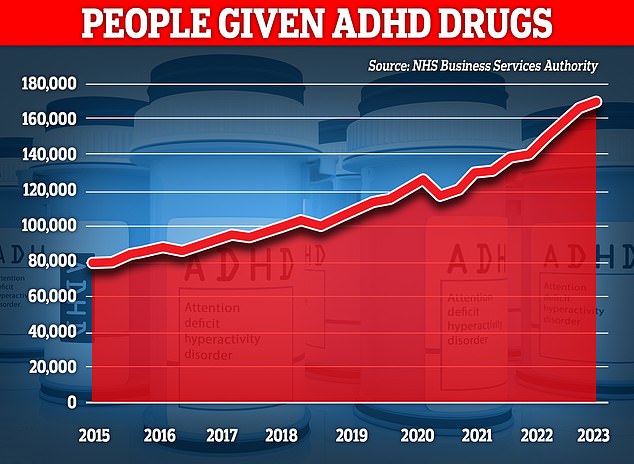- READ MORE: Scientists pinpoint the age where the body begins to break down
A UK nurse who assesses patients for ADHD has gone viral after revealing the unexpected questions she uses to help spot the condition—including how many unread emails you have.
Marie, known to her 120,000 TikTok followers as The Zebra Nurse, shared the tips in a clip that's now racked up more than 300,000 views.
Her first question? 'How many unread emails do you have in your inbox?'
While not part of the official diagnostic criteria, she explained: 'It helps inform me if my patient has difficulty with administrative tasks.'
Neglecting an overflowing inbox, she said, can be a red flag for inattention and problems with executive function—the mental skills that help you manage daily life.
'If they're not clearing their inbox, they are probably not opening or filing their mail either,' she added.
Next up: 'Which housework chores do you routinely avoid doing and why?'
'This question is looking for difficulties with sequential tasks, such as laundry,' Marie explained.
This task, she said, actually involves a lot of steps, including gathering the laundry, putting the clothes and detergent in the washing machine, and turning it on.
Then when it is done, she said, they have to take the washing out, dry it, fold it and put it back away again.
'If people can't manage that task then it usually indicates they have got some kind of executive dysfunction going on.'
The third question is: How do you feel about queueing? This, she said, is a task people with hyperactivity and impulsivity find 'very hard'.
This is because, they are expected to stand still, not fidget, be quiet and fight the impulsion to leave, she explained.
The fourth question, she revealed is: Are you able to build flat pack furniture or follow a recipe from a cookbook?
'Now this actually assesses a couple of different things,' she said, 'it tells me one you have the concentration to be able to read the instructions, and two, do they have the actual ability to follow the instructions'.
And finally, the fifth question she asks patients is: What is your relationship and work history like?

This she explained, is because people with ADHD 'tend to end jobs and relationships very quickly and impulsively'.
The video received lots of comments from social media users who related to the interesting ways traits can manifest.
One user commented: 'I've got 120,000 total emails across all my accounts. Cleaning the floor and wiping down the surfaces—I hate.'
And on queueing, they added: 'I definitely prefer self-checkout, which is why I love ASDA.'
A second user wrote: '23,456 unread emails, washing clothes send me into a mental breakdown, I get frustrated in queues.
'I do ok with building flat pack but don't necessarily use the instructions. I have a great relationship, he's dealt with me for 12 years+. Dr refuses to refer me.'
However, another commented: 'The building flat packed furniture never was a problem. I never looked at the manual, but I still build it the correct way.
'So, I do have problems following instructions, but also my brain is good at figuring out how things work.'

It comes amid a sharp rise in the number of adults seeking ADHD diagnostic assessments later in life.
In recent years diagnoses have soared, with more than 2.6 million people in the UK now estimated to have the condition.
Some have suggested this is because too many incorrectly people think they have the condition, while others put it down to better awareness of how it affects women.
A review of research published from 1979 to 2021 about females with ADHD showed girls and women tend to show inattention and internalised problems,
Meanwhile, in contrast, men show greater hyperactivity, impulsivity, and externalised problems.
The study also found clinicians may overlook symptoms and impairments in females because they appear less overt, despite still impairing them.
Concerningly, it also revealed that up until recently, almost all research on ADHD has focused on boys and men.
Read more
Post a Comment for "ADHD assessor reveals five surprising questions she asks people who think they have the condition"